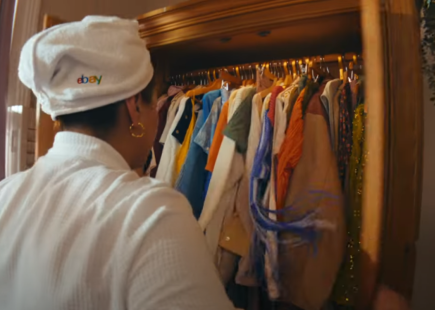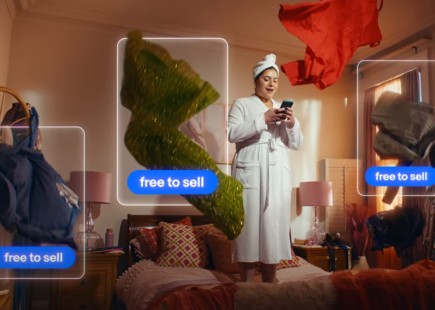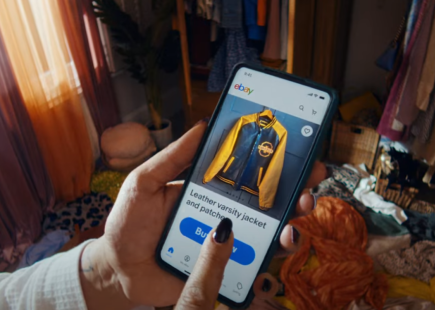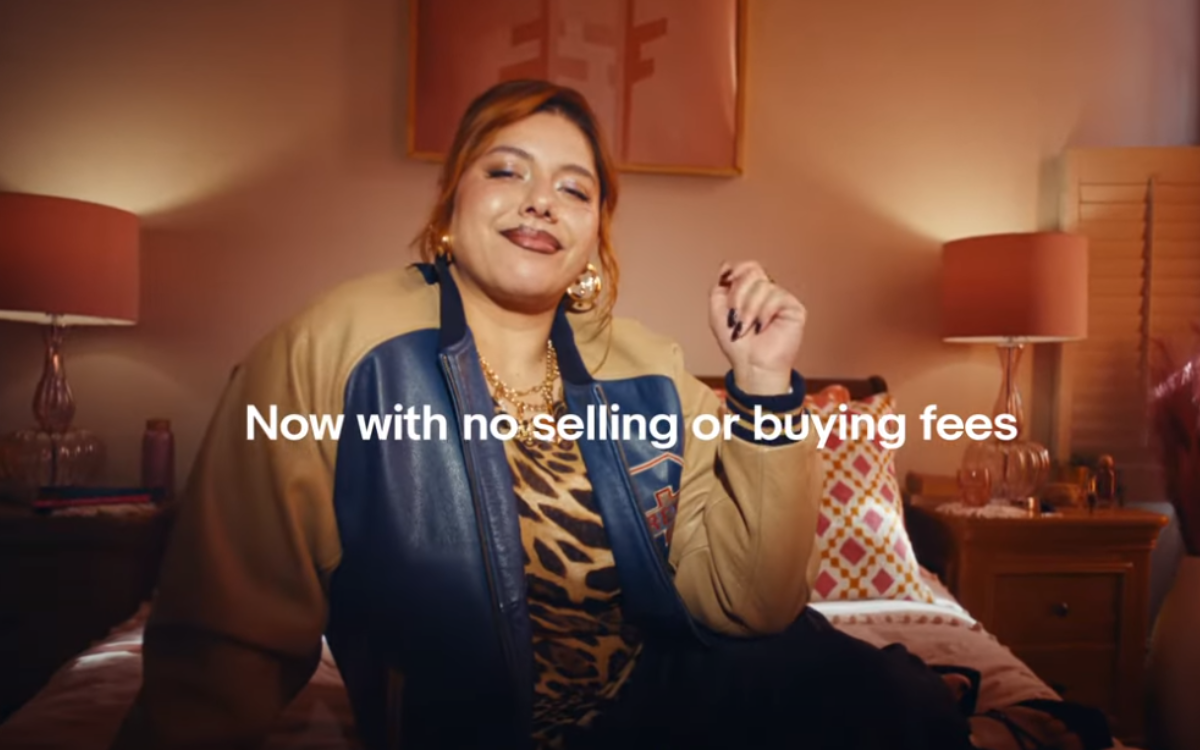eBay UK launches campaign encouraging consumers to sell unloved apparel

Despite overflowing wardrobes, many of us often feel like we have nothing to wear.
eBay UK recently conducted research that shows two-thirds of Brits wear only half or less of the clothes they own on a daily basis. And our wardrobes remain full, with only one-quarter of us selling our unwanted items. According to eBay, this amounts to over £16bn worth of unworn clothing in the UK.
With consistently high inflation and cost of living, it makes sense to appeal to those who are keen to declutter and make money while doing something good for the planet. Fast fashion is a growing concern, and many see the circular economy - reusing and recycling products to slow down the use of natural resources and reduce greenhouse gas emissions - as an efficient solution to this problem.
To support circular fashion (and encourage selling on their platform), eBay UK has launched the "Turn Nothing to Wear into Something to Love" campaign. The brand created four stories that showcase real-life situations and capture the frustration of having nothing suitable to wear, such as sifting through clothes without finding anything suitable and experiencing last-minute panic when running late.
The campaign was developed by DEPT and launched in the UK at the end of April. It runs across OOH, digital, radio, and TVC until late June.
A campaign that doesn’t quite fit.
Around the turn of the millennium, I considered myself an eBay fan. Bidding on products and waiting anxiously for a positive outcome was as exciting as watching Big Brother. (Yes, I was easy to please at that time.) eBay accompanied me through various moves to different cities and countries. I always found buyers for things I wanted to sell and sellers for things I wanted to buy, such as furniture, household items, and books.
At some point I stopped using eBay until it reappeared as a platform to buy new goods, similar to Amazon. When the brand expanded from a buying and selling platform to an ingredient of the circular economy, I could see the attraction but I wasn’t sure if this was for me.
When it comes to buying preloved clothes, I'm slightly reluctant because I want to know where they come from. I have no general issue with wearing second-hand clothing, but I'm hesitant when I don't know the seller. It's one of the biggest challenges of the circular economy: can I trust the person I'm buying from that they are not selling something unusable, broken or unhygienic?
eBay's new campaign effectively places the brand into the circular economy in a relatable and humorous (ish) way. What's most refreshing is that the campaign doesn't rely on AI to make its point, unlike many other campaigns such as the ones my colleagues recently analysed (Dove, AI beauty pageant and a smart hone that makes you smarter).
It taps into something quite human: "I have plenty, but nothing I have is right, so now I am panicking." The stories are well-thought-out and supported across eBay's social channels, as well as a "fashion extravaganza" hosted by comedienne Katherine Ryan, showcasing and selling iconic pre-loved fashion treasures in real time. So, a job well done.




However, the campaign falls short of addressing consumers' reluctance to buy and wear second-hand clothes.
In fact, it completely ignores this reluctance. While eBay is really only a tech enabler to facilitate transactions between individuals, it feels like a missed opportunity for the brand not to directly address these concerns. Many of us don't need convincing that selling stuff we no longer need is a good thing, but a fair few of us need convincing why we should buy something someone else doesn't need anymore, especially when it comes to intimate items like clothing.
The campaign works for me in the sense that I understand what it wants me to understand. But it equally fails to address the other side of the equation. Without buyers, selling makes little sense. Ignoring buyers, the campaign is much less impactful. While anything brands can do to fight climate change is commendable, this campaign addresses only one aspect of the issue. Overall, I'm not convinced. I'm still unsure if this is for me.
Brand Credit: eBay UK
Agency Credit: DEPT

If you enjoyed this article, you can subscribe for free to our weekly email alert and receive a regular curation of the best creative campaigns by creatives themselves.
Published on:




